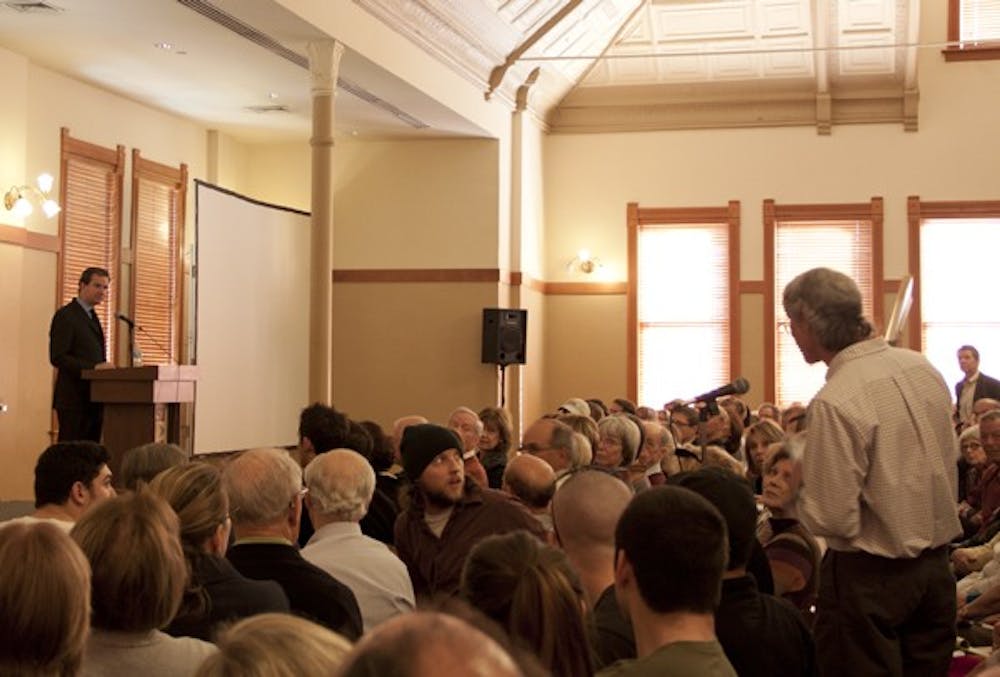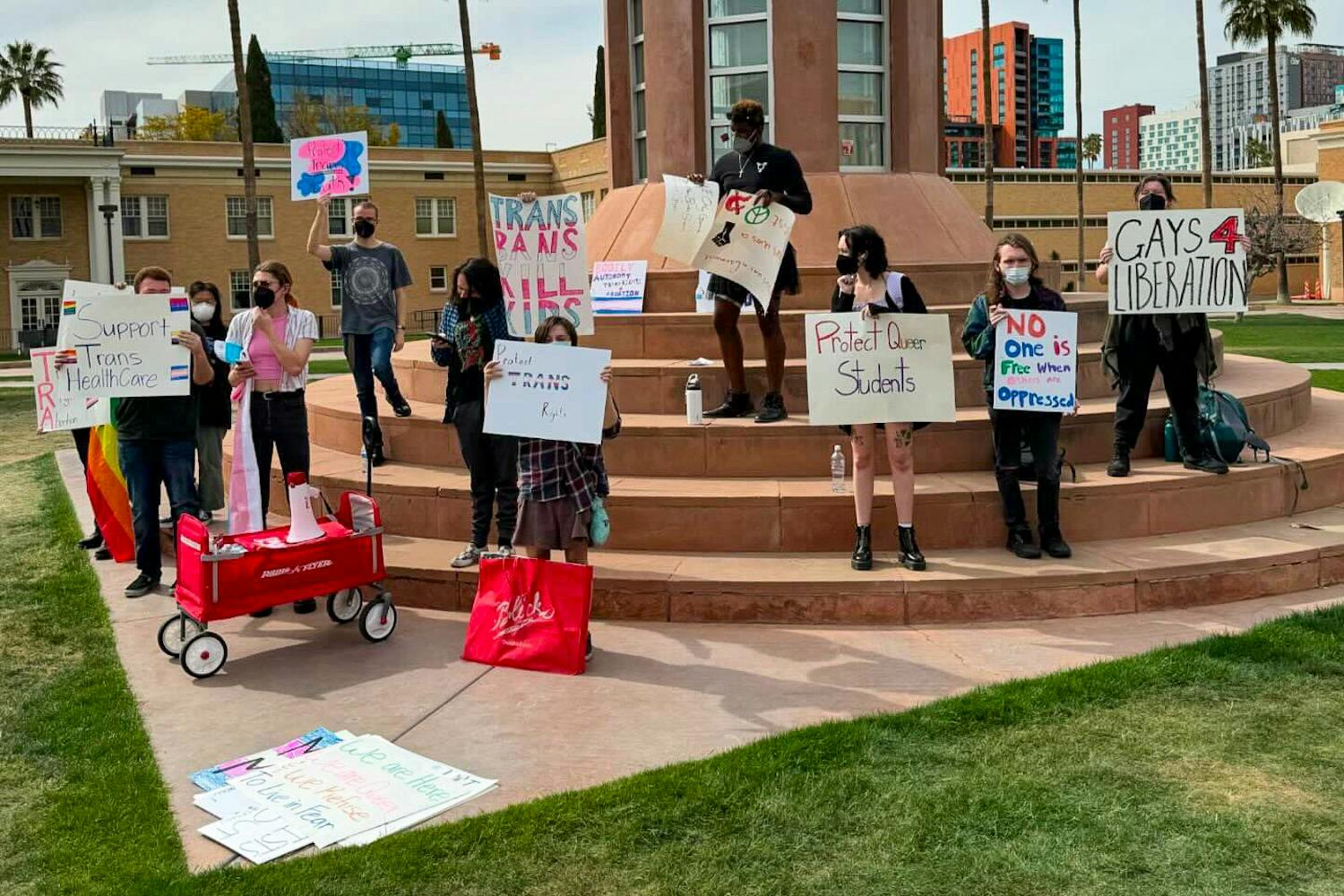 CNN national security analyst Peter Bergen gives a lecture on the 'war on terror' in the Middle East at Old Main on Thursday, Jan. 31 (Photo by Abhiram Chandrashekar)
CNN national security analyst Peter Bergen gives a lecture on the 'war on terror' in the Middle East at Old Main on Thursday, Jan. 31 (Photo by Abhiram Chandrashekar)CNN national security analyst and award-winning author Peter Bergen reviewed the last 10 years of conflict in the Middle East at a Tempe campus lecture Thursday, noting that the "War on Terror" is winding down to a conclusion.
The lecture, titled "The Longest War: America, Al-Qaida and the Middle East," was sponsored by the Center for the Study of Religion and Conflict and was part of its biannual Alternative Visions lecture series and attracted more than 150 viewers. The event was funded by a gift from philanthropists John and Dee Whiteman.
Bergen spoke at the center's first public lecture in March 2003 on the topic of "The Rise of Religious Terrorism." He said much of the action in the Middle East was tapering off at the time of his 2003 lecture, but al-Qaida's successful plans to incite civil war in Iraq eventually shattered what seemed like a situation under control.
"In March 2003, there were a lot of things that weren't going to be apparent to any of us unless we were clairvoyants," Bergen said. "With the right application of violence ... in certain circumstances, you can change history."
He said the "War on Terror" is arguably the longest war in American history.
"It began for most Americans on the morning of 9/11," Bergen said.
He likened the Sept. 11, 2001 terrorist attacks to the Pearl Harbor attacks, not only because of their surprising nature but because of their end results.
The Pearl Harbor attacks eventually lead to the collapse of imperial Japan, a consequence that is shared by al-Qaida's current weakened presence and influence, Bergen said.
He said President Barack Obama's approach to the conflict, which focused on going to war with al-Qaida and its allies, has been one of the most aggressive military strategies in recent presidential history.
"I think (Obama's strategy) is the best framing we can get," Bergen said. "We haven't really resolved satisfactorily the exact kind of conflict we're in. It's not exactly the kind of war we're used to."
Bergen touched on historical milestones ranging from the 2001 Battle of Tora Bora, at which al-Qaida leader Osama bin Laden is believed to have been, to the more recent strategic partnership agreement between the U.S. and Afghanistan to extend American presence in the country until 2024.
He said the war yielded positive results in Afghanistan by increasing life expectancy, gross domestic product and school enrollment, as well as retaining millions of Afghan refugees and strengthening female presence in classrooms.
Bergen said al-Qaida's weakening is largely attributed to U.S. strengths, including an expanded no-fly list, increased communication between the FBI and CIA, greater public knowledge and the creation of the Transportation Security Administration, Department of Homeland Security and National Counterterrorism Center.
"This has been devastating to al-Qaida," he said. "Many affiliates have gone out of business. At the end of the day, I think encoded in the DNA of these groups is their own destruction."
Bergen said the conflict is in the process of resolution and joked that he hoped he never needed to lecture on it in the future.
"There are always going to be these (terrorist) groups," he said. "The question is whether it's a manageable, containable problem ... or if it's a national security problem. To me, this is sort of a second-order threat."
Linell Cady, director of the Center for the Study of Religion and Conflict, said Bergen serves as a guide for the last 10 years of Middle Eastern conflicts that often become murky and tangled.
"If you're a 20-year-old college student, some of this would have happened when you were not fully attentive to global politics," Cady said. "(Bergen) is able to help ... make sense of it and get a handle on it."
Global politics and finance senior Kristell Millan attended the event because her political science professor cancelled class so students could listen to Bergen's lecture.
She said she was unaware of many of the positive consequences of the war, and she was surprised at the gains of the Afghan people.
Millan said the 10-year conflict has challenged the U.S.'s dominance globally.
"It's helped our generation become more involved and aware with respect to the rest of the world," she said.
Reach the reporter at dgrobmei@asu.edu or follow her on Twitter @danigrobmeier




